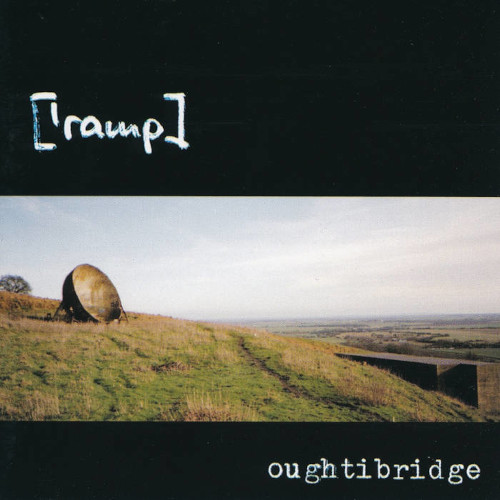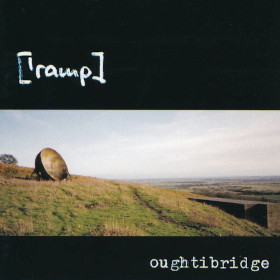Today, Ambient Music is a lively and very diverse trend. Here are some album reviews to shine a light on artists or albums maybe too little known, or which in any case deserve a special mention because of the truly creative dimension of their music: Chronotope project, Stephen Parsick, Proton Kinoun / Kasper Weensgaard, Pjusk and a Steve Roach’s album, The Delicate Forever.
Chronotope Project – Event Horizon – Passages
The current ambient trends shape the music of tomorrow with the instruments of today, especially in avoiding the immoderate or systematic use of the sequencer in a Berlin school fashion. The quest for new and often strange ambiences is rooted in very sophisticated soundscape research, in a minimal aesthetic depicting inhabited universes, presences simply suggested but as tangible as a dream.
This remarkable economy of means, art of saying a lot with very little, is pushed very far by Jeffrey Ericson Allen, whose Chronotope Project sows small jewels on a prolific and living stage. The albums “Event Horizon” (2013) and “Passages” (2016) illustrate this. Beyond the clearly perceptible influence of Steve Roach, each album has a deep sense of unity, melodies being more present in the first one. The track “Geosynchronous” is based on a melody of two simple notes repeated as the strong construction of the climate goes on.
Passages” exposes a considerable evolution of the composer towards pure atmospheres whose simplicity remains illusory. The evolution of the sound context of each of these long pieces invades the listener and builds a bewitching inner appeasement. Evocative climates tend to timelessness by the often allusive use of traditional percussions or melodic fragments that suffice to summon an imaginary shaman, a tribal musician whose shadow floats above a universe of real and living dreams.
[`Ramp], Oughtibridge (2005)
It begins like drone music. Powerful ambiences, largely improvised, stage a very controlled minimalist expression: minute details, harmonic alterations, subtle sound effects take their full meaning in their discretion and show the mutual listening of two musicians who transport their audience to a gloomy and disturbing world. This universe gradually gains in urgency as in blackness through the stretching of haunting and secret atmospheres. When the music dissipates, it becomes the most tense, unlike everything that is considered crescendo: it is the expressive richness of the ambient, which builds a universe all the more inhabited that we approach silence. But everything explodes in the very surprising use of the sequencer at the third of the album, as the summit of contrasts and tensions invade the listener: « Tool », but also « Spinegrinder » near the closing of the album, which exposes melodic elements very convincing and always very dark.
The cover of the album is like the music itself: an apparent desert that can conceal anything, particularly if an old and strange device is listening in the void to something very unlikely but absolutely real.
Spontaneous creation of musicians who claim the label “Doombient”, this music is the work of Frank Makowski (electronics, sampling, tools, sequencing) and Stephen Parsick (electronics, atmospherics, tools, sequencing), improvising the construction of deeply personal soundscapes. Steve Roach wrote a review of this album.

Listen to this album online at Bandcamp
Proton Kinoun, Apeiron (2008).
Apeiron (ἄπειρον) is a Greek word meaning “(that which is) unlimited,” “boundless”, “infinite”, or “indefinite”. Anaximander believed the beginning or ultimate reality (arche) is eternal and infinite, or boundless (apeiron), subject to neither old age nor decay, which perpetually yields fresh materials from which everything we can perceive is derived. (Wikipedia).
« Apeiron » is composed and produced by Danish musician Kasper Weensgaard, here Proton Kinoun, with a clear inspiration of trance music, totally transcended here. The metaphysical reference of the album’s title describes very well this music as continuous generation of perpetually renewed beings and forms through the eternal circulation of an elusive reality. The album opens and closes with vast atmospheric layers that frame the unveiling of the heart of reality: rhythm, pulsation. In the 5 central tracks, the throbbing rhythms are shamanic, incantatory and always completely electronic. The percussions sounds are special and unexpected over a tempo, marked by the bass and the kick drum, emerging from immense synths layers and revealing these strange sounds, this inexhaustible rushing of shapes, textures and atmospheres from beyond. No melody. Very deep cilmates never identical in their repetition and their circularity. Liquid music. Apeiron.
After such a masterpiece, one can only regret the silence of this great composer who gives himself the face of the First Engine of Aristotle, Proton Kinoun, but which is not Akineton, motionless. Far from there.
Discogs hosts this album description and reviews.
Pjusk
They make music in the northern wilderness. They express deep and distant feelings with very few notes, climates, atmospheres and sounds. Five albums have been released so far, each one of them creating a timeless mood, or the music of the future. On the albums « Drowing in the Sky » and « Solstov », the trumpet of Christopher Pegg (sleep orchestra) expresses loneliness in remote places, a deep sense of strangeness and isolation as the music achieves to blur all boundaries and styles.
Ambient music doesn’t follow existing moods, it creates them. There are often few words to express masterpieces which nonetheless cause so much to think and feel.
« Pjusk is Rune Sagevik and Jostein Dahl Gjelsvik from the west coast of Norway – both from small villages close to nature. The sound of Pjusk is inspired by the harsh Norwegian weather and wild landscape. At the center point of the collaboration between the two is an old cabin high up in the mountains. This is where most of the music of Pjusk is made – framed by snowy peaks and the sound of cold streams. » (Official Web site)
Steve Roach – The Delicate Forever (2014)
What can be said about Steve Roach ? That he is the major source of inspiration for a generation af ambient musicians ? That his works proves that no melody nor rythm is necessary to express something with music ? Or that he has created such a vastness of innovative music and sounds that his albums should stand the test of time as no one can ignore him today ? Maybe Kandinsky or Vasarely can be compared to what should be Steve’s influence on our world : omnipresent abstraction. It’s absolutely real, even if we don’t perceive it.
Totally ethereal and abstract music, « The Delicate Forever » confines itself to the atonality as the tangle of sound cycles sets up the listener in imaginary and very sugestive dreamlike spaces. The repetition, like a breath, crosses caves and shelters abounding of interior details, the 5 pieces following each other like prisms plunging towards a deep timelessness. Secret places “where the mysteries sleep”, inhabited by harmonious volutes full of a hidden, hynotic meaning, traces of a presence and a fullness of which only an feeling is perceived, emanation of a serenity that fascinates and, deeply, soothes. A kind of essence for ambient music in its most current evolution, which brings together music and architecture as powerful creation of imaginary spaces, without real rhythm or melody.
« The Delicate Forever » is a 2014 album maybe a little drowned in the abondant production of a prolific musician, maybe because the intensive use of sequencers on albums such as « Skeleton Keys » is much easier to discover.
This video is Steve Matson’s abstract work, which can be discovered on its web site.
